
Six Amazing Benefits of SEO Audit
Identify Ranking Issues
An SEO audit can help identify ranking issues by evaluating a website's on-page and off-page optimization. It will also tell you the areas that need improvement to rank your website higher in SERPs.
Identifies Content Optimization Gaps
An SEO audit assesses how well a website utilizes keywords and other SEO techniques to rank higher in SERPs. It will find the areas where the website could improve its content to make it more visible and appealing to search engines.
Recommends Strategies
SEO audits recommend strategies for improvement. Some common recommendations might include revising your title tags and meta descriptions, improving your site's speed, adding more relevant content, and fixing broken links.
Helps Improve Conversion Rate
A thorough examination of your website will evaluate its visibility and structure. It also identifies the opportunities to improve its ranking and organic search traffic. By implementing the recommendations, one can achieve increased conversion rates.
Helps Avoid Penalties
Audits are important because they help identify any potential penalties that may have been incurred due to incorrect SEO practices. By identifying any penalties early on, businesses can avoid further damage to their website ranking and visibility.
Strengthens Your Website Security
An SEO audit is an important step in website security. Identifying and addressing vulnerabilities can help protect your website from attackers. It tells you if there are any weak points in a website's security that cybercriminals could exploit.
What is an SEO Audit?
An SEO audit determines how efficiently your website complies with your best SEO practices; it is the first step in developing a measurable SEO strategy.
The objective of an SEO audit is to identify as many fundamental flaws as possible that affect the organic search performance of a business website.
A measurable SEO audit will track technical SEO issues, potential web structure faults, user experience issues, and competitive market insights. Hence, a measurable SEO audit should always follow a successful SEO strategy.
This article will discuss everything you need to know about SEO Audits and why they are important to your SEO strategy.
Importance of SEO Audit
![]() To Detect Technical SEO Issues
To Detect Technical SEO Issues
Technical SEO is an integral part of an SEO audit. Technical SEO involves essential search engine ranking factors such as mobile SEO analysis, Crawlability, URL structure, and page speed of a business website.
Running an SEO audit will tell you the areas of concern for your website and how to improve them.
Crawlability is vital for search engines to index and rank your business website. Websites with navigational ease are often more crawlable than the others. Page speed optimization will help your business website engage more organic prospects and have higher on-site dwell time.
You can use Google’s PageSpeed Insights tool to optimize your page speed
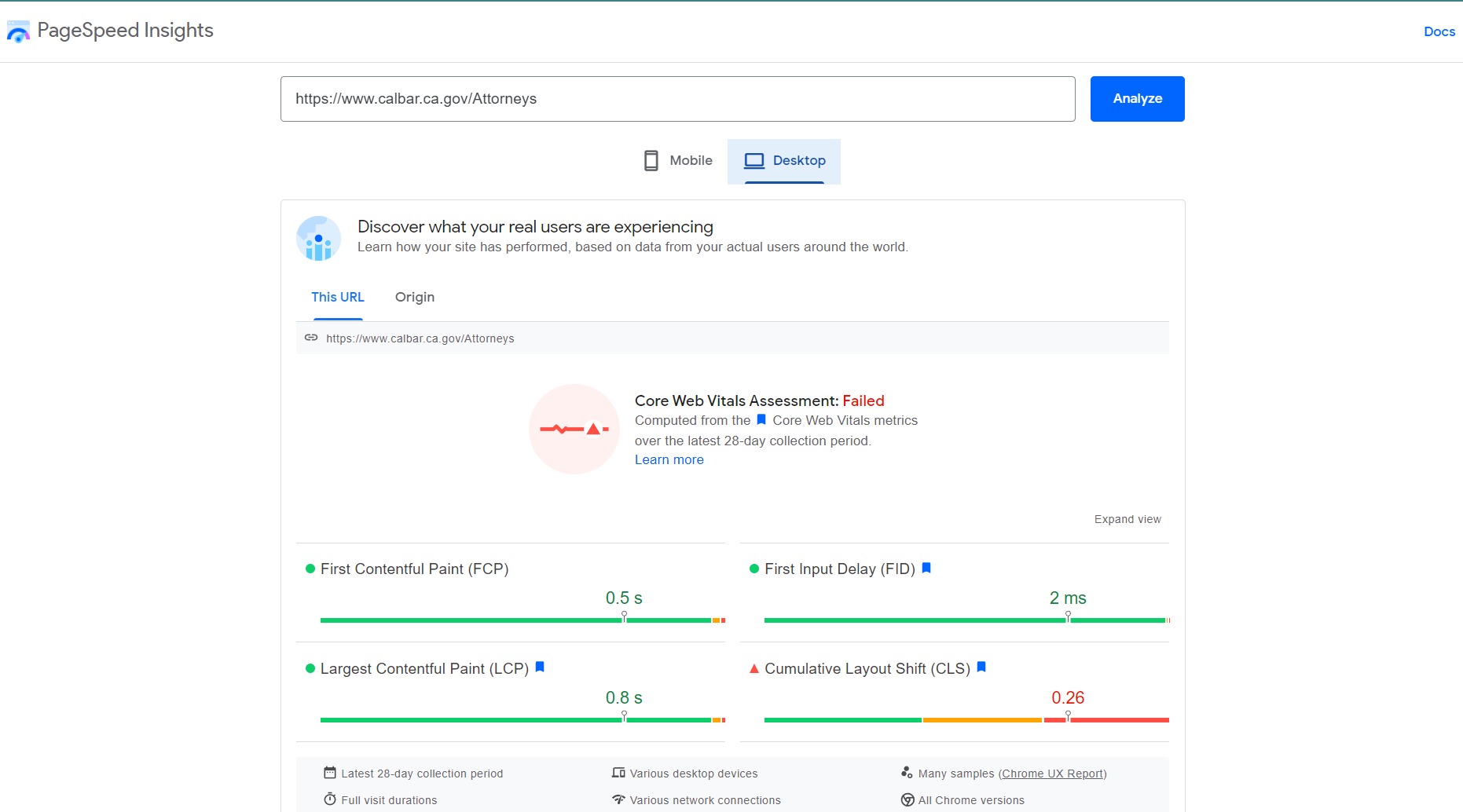
![]() To Do On-page SEO Analysis
To Do On-page SEO Analysis
Market visibility, Meta details (Meta Tags and Descriptions), on-site link building structure, and website content comes under on-page SEO analysis.
These are important SEO factors for a business website. These metrics contribute to market reputation, brand building, and credibility among the target audiences of a business website.
Meta details and link-building structure of a business website contribute to the online presence of a business website. Website content attracts and engages prospects on-site.
An SEO audit will keep track of your business website's before and after SEO health by keeping these on-page attributes in the analysis process.
You can use Sitechecker to perform on-page SEO analysis.

![]() To Find Potential Off-site Issues
To Find Potential Off-site Issues
Off-site issues of a business website include social media engagement, audience outreach, and guest blog performance. These are vital metrics of a measurable SEO audit.
SEO audits can detect any flaws in your existing SEO practices to maximize the above attributes.
Social media engagement is integral to a business website's market visibility and brand building. You can leverage social platforms to improve your overall audience outreach and online mentions.
Guest blogging is another SEO practice to acquire performing and high-quality backlinks from websites with high domain authority. An SEO audit tracks redeemable flaws in your existing SEO strategy.
Here’s an example of a guest post.

![]() To Improve Website Architecture
To Improve Website Architecture
Website architecture is vital to a business website's SEO strategy. SEO is a digital marketing strategy that emphasizes both the external and internal structure of a business website.
SEO produces long-term and sustainable market growth due to its emphasis on minute technicalities. Hence, website architecture is an important metric of an SEO audit.
Website architecture involves site security, database management, source-code optimization, and the scannability of a business website.
Websites with robust internal architecture are often indexed on priority and ranked higher by search engine crawlers. A measurable SEO audit will open up opportunities to further strengthen your website architecture.
Here’s an illustration of a website’s architecture.

![]() To Gain Competitive Market insights
To Gain Competitive Market insights
Competitive market insights involve comparing link structure research, keywords research, and marketing research with your SEO competitors in the market. These attributes are vital to an SEO strategy.
These metrics play deciding factors in the rankings of a business website on the search engine result pages.
Link structure research gives us insights into the link juice of a website. Link juice or link equity contributes to vital SEO factors such as site traffic and on-site user engagement. Keyword research contributes to audience outreach and brand building.
Here’s an illustration of link juice.

![]() To Measure The Success of SEO Strategies
To Measure The Success of SEO Strategies
One of the primary objectives of an SEO audit is to track the feasibility and success of existing SEO practices of a business website.
An SEO audit will track all the measurable SEO metrics of a business website. These attributes include site traffic, lead conversion rate, user experience, and market reputation.
SEOptimer is an effective tool for performing an SEO audit.

All these metrics mentioned above are crucial to a successful SEO strategy. An SEO audit will identify flaws in your current SEO practices.
Your webmaster will help you rectify those mistakes to improve the overall SEO health of your business website. Hence, an SEO audit enhances the success rate of SEO strategies.
![]() To Measure The Content Health of a Business Website
To Measure The Content Health of a Business Website
Fresh content rules the field of SEO and SEM. Creating engaging content will drive organic traffic to a business website.
Link-worthy Content will attract backlinks from websites with high domain authority. The role of content in an SEO strategy is vital. Hence, the content health of a business website should be a priority SEO attribute.
You can check the Domain Authority of a website using this tool.

Content freshness will improve the on-site user experience. It will improve your on-site dwell time and engage more organic prospects. An SEO audit will open up opportunities for you to improve your content and its market relevance.
Niche-specific and market-relevant content on-site will yield better market performance for a business website.
![]() To Detect User Experience Issues
To Detect User Experience Issues
User experience is central to any performing digital marketing strategy. User engagement and on-site user experience are integral to a successful SEO strategy.
Here’s a screenshot of Google Analytics measuring a website’s user engagement.
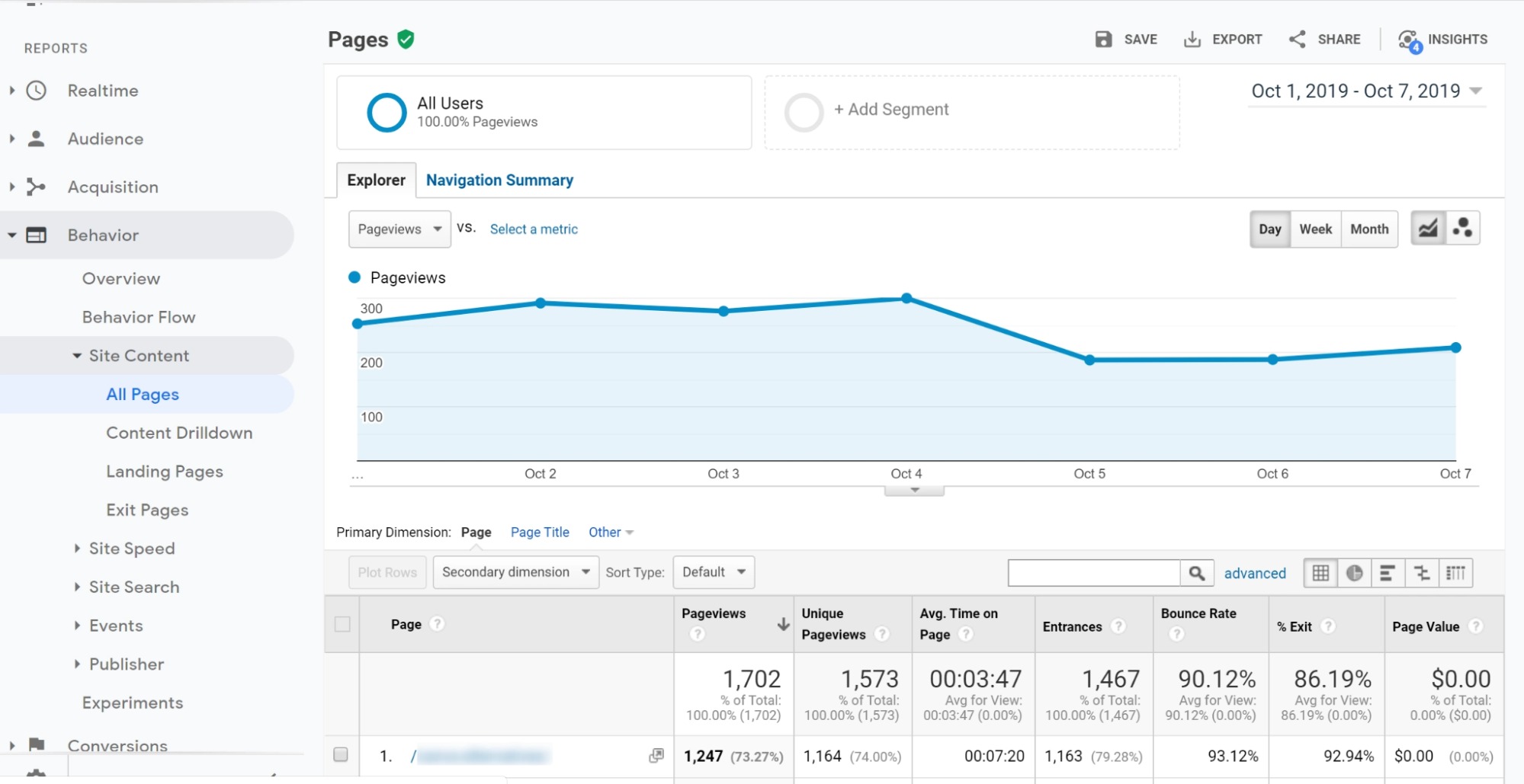
SEO audit will identify if your website has any on-site engagement or experience issues. You will be able to resolve and improve your existing flaws in SEO practices.
SEO audit focuses on off-site user experience issues as well.
Social media engagements and local directory engagements are essential factors to improve the user experience of a business website. Hence, it is important to discuss how to conduct a measurable SEO audit with your webmaster before putting up an SEO strategy.
The Complete SEO Audit Checklist
![]() Online Visibility of a Business Listing
Online Visibility of a Business Listing
One of the most basic indicators to consider for an SEO audit is the online presence of a business website. You must consider your target customers’ points of view while determining your overall online presence in the market.
The ease with which local prospects can reach out to your business website dictates your online presence.
Some of the tips and tools to strengthen your online presence in the market are as follows,
- Google My Business insights can be used as an indicator in an SEO audit to determine your website’s online visibility. GMB analytics offers features and statistics to provide vital information regarding website traffic, user engagement, and market reputation
Here’s a Google Maps report of a GMB profile.
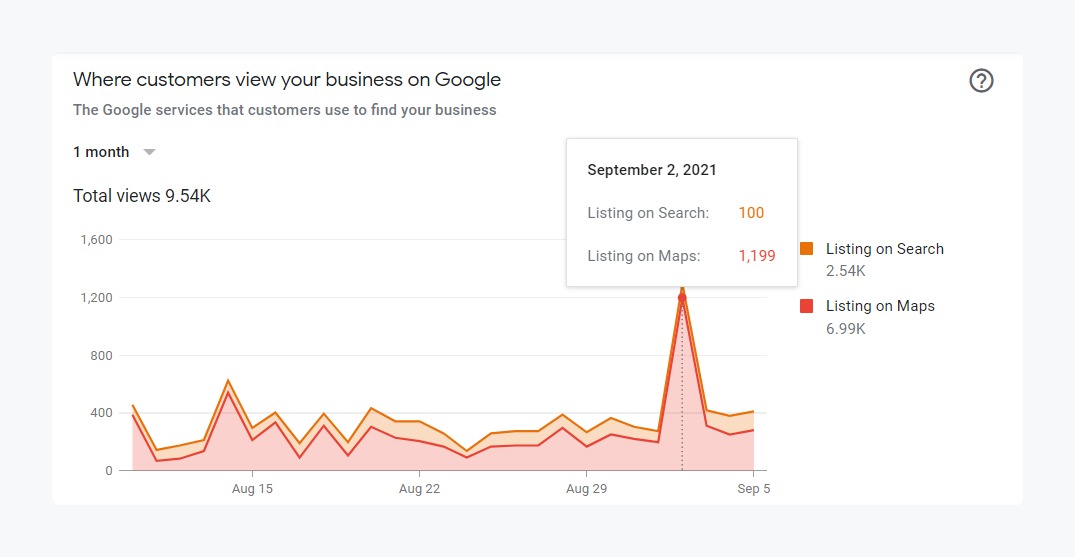
- Acquiring backlinks from high-authority websites can enhance online mentions and visibility for a business website. Guest blogging is undoubtedly an effective practice to acquire external links from authoritative sites.
![]() On-site Lead Conversion Rate
On-site Lead Conversion Rate
Tracking the organic traffic flow of your company’s website provides information about the quantity but not the quality of your site traffic.
Tracking your lead conversion rate will tell you precisely the number of convertible prospects your site is driving through marketing and on-site content.
A vital metric for a measurable SEO audit is a business website's organic lead conversion rate. Business owners are experimenting with various digital marketing techniques and SEO practices to boost their lead conversion rate.
Let’s discuss some of the proven tools to keep track of your organic lead conversion rate for an SEO audit.
- Google Analytics is one of the best tools to keep track of your website’s lead conversion rate.

- TryInteract drives more organic conversions through creative opinion polls and quizzes.
- Clicky offers powerful analytics tools to monitor your lead conversion rate of a business website.
![]() On-site Traffic and Dwell Time
On-site Traffic and Dwell Time
Increasing on-site traffic is one of the most basic goals of a digital marketing strategy. A well-thought-out SEO strategy can significantly boost your existing site traffic. A measurable SEO audit will use the existing SEO practices and their effects on the site traffic as metrics.
Business owners should question the nature of their site traffic. Are they organic? How much of the driven traffic is convertible?
Are they going to boost the market rankings?
Does this traffic contribute to the dwell time?
They should also inquire about the driven traffic's long-term viability. A measurable SEO audit will answer all of the questions mentioned above.
Some of the tools to keep track of the on-site traffic and dwell time are as follows,
- StatCounter helps track website traffic and its demography.

- QuantCast helps you track your traffic and their dwell time.
![]() Market Rankings
Market Rankings
In an SEO audit, the market ranking of a business website is a crucial attribute. Business owners are putting their money and efforts into getting their business website to appear on the first two search engine results pages (SERPs).
There are two types of market rankings on SERPS: Local and Organic.
Local rankings are determined by how well your brand performs in your neighborhood. On the other hand, organic rankings are determined by a website's performance compared to its global competitors.
Some of the proven tips and tools to improve the market rankings of a business website are as follows,
- Improve navigational ease of your business website for both your users and search engine crawlers.
- Acquire high-quality online mentions and backlinks.
- Use Google Search Console to keep track of your organic rankings across the internet.

![]() Market Reputation and Credibility
Market Reputation and Credibility
Market reputation is one of the deciding metrics of a measurable SEO audit. Market reputation consists of user experience, brand acknowledgment, and audience opinion in the market. An SEO audit scans through these attributes.
You will be able to improve your reputation management strategy based on the audit results.
Online mentions are a great way to improve brand acknowledgment among your target audience in the market.
You can leverage social media platforms to conduct opinion polls and surveys to know your brand reputation in the market. Such practices will improve your brand credibility and recognition.
Some of the proven tools to improve your brand reputation in the market are as follows,
- Facebook and Instagram can help you conduct opinion polls. You can also use LinkedIn to run a business survey among your target audiences.
Here’s an example of a poll on Instagram.

- Ensure creating link-worthy on-site content to attract backlinks and mentions.
![]() On-site User Experience and Engagement
On-site User Experience and Engagement
Another critical KPI for a measurable SEO audit is user experience. Keep the website bounce rate in mind while doing an SEO audit on your business website.
The bounce rate can tell you how many people are exploring your business website once they've landed on it.
User experience is inversely proportional to site bounce rate. User experience will drop down with your visitors spending less time on-site. Hence, keeping the bounce rate low is vital to improving user engagement and experience on-site.
Let's discuss some proven tools and tips to keep track of your user engagement and experience on-site.
- Leverage customer-centric dashboards and public opinion polls to improve user engagement.
- Use Google Ads to run a marketing campaign to build your brand in the market.
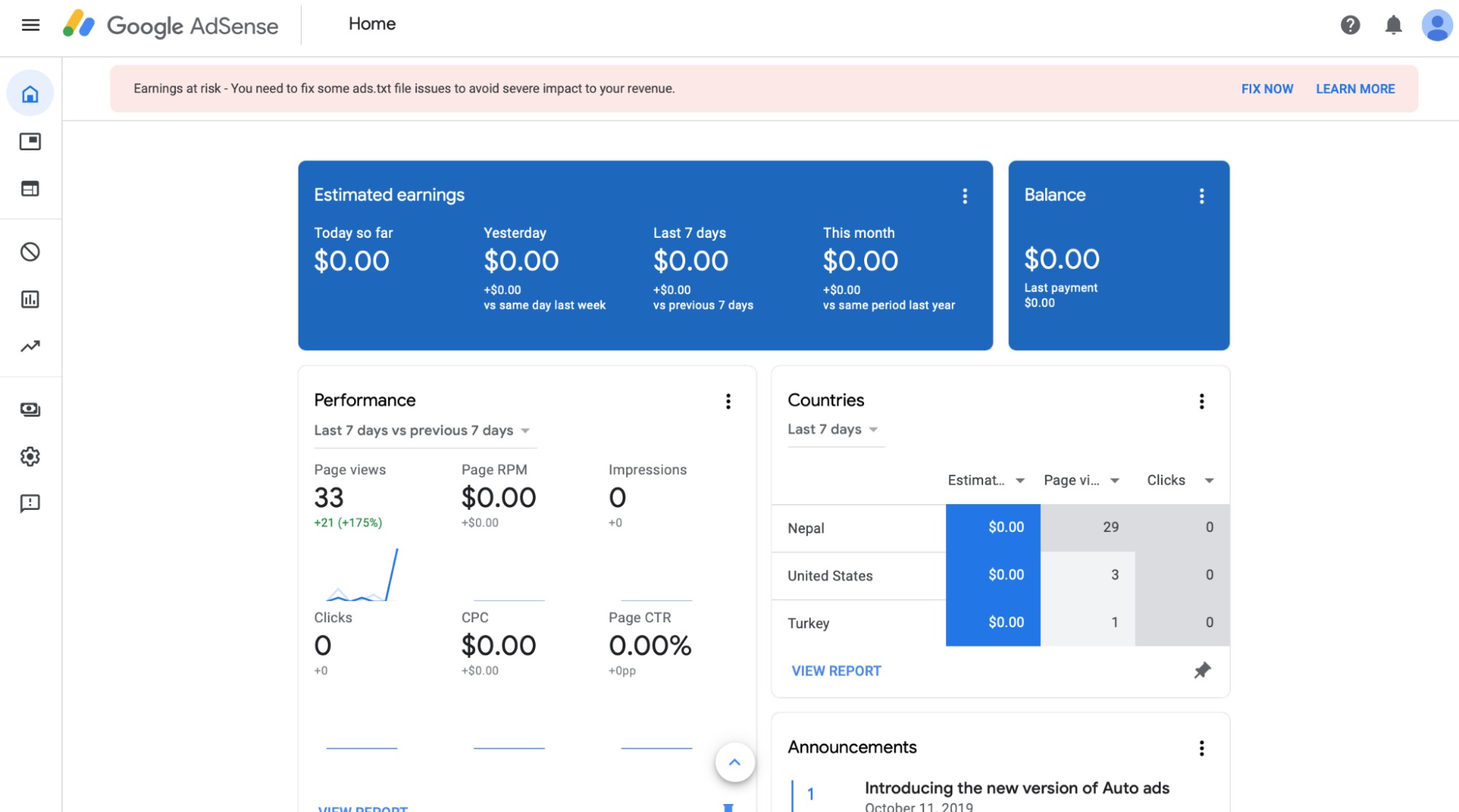
- Attend and resolve on-site reviews and feedback to improve UX.
![]() Website Load Speed and Downtime
Website Load Speed and Downtime
Website load speed is a vital KPI in an SEO audit.
The speed with which your business website loads influences how quickly your audience is exploring your website. Hence, the sooner your audience has access to your website, the more likely they will engage and consume your on-site content and avail of your services.
Website speed and downtime are interdependent SEO metrics. The longer it takes for your business website to load, the higher downtime it will experience.
You can test your website’s loading speed using the Pingdom Website Speed Test tool.

Higher downtime reduces on-site user engagement. SEO audit will identify factors reducing your website speed for you to rectify.
Some of the tips and tools to improve website load speed and downtime are as follows,
- Cache all your performing pages to reduce the load on your server.
- Filter out all of your on-page non-performing redirects. Use Google Analytics to monitor all your on-page redirects.
![]() On-site Technical Issues
On-site Technical Issues
Technical issues are fundamental issues to check in an SEO audit. Crawling troubles might impact your website's SEO health despite your hard work and plans.
Technical issues can severely affect your market rankings, reputation, and revenue generation opportunities.
Crawlability refers to how well a search engine can access and index your business website. The less time it will take to crawl and index the website, the higher it will rank on SERPs. Hence, a measurable SEO audit helps you figure out ways to outmaneuver technical issues on-site.
Let's look at some proven tips and tools to resolve on-site technical issues.
- Optimized webpages are more accessible to crawl and index by search engines.
- Use AdobeXD to use an audience-centric UI. It will have navigational ease and high crawlability.

![]() Reviews and Testimonials
Reviews and Testimonials
During an SEO audit, keep an eye out for the number of visitors who are putting up queries and exploring the reviews section of your business website. It will help you identify the percentage of users attracted to your business website due to a dedicated reviews section.
A reviews section usually influences buying decision of a customer.
Make sure to attend and resolve genuine customer testimonials and feedback on-site. The more time your site visitors spend on the reviews section, the more likely they will become actual customers.
Let’s look at some of the reviews platforms you can leverage to improve your on-page SEO.
- Local directories such as Google My Business and Bing Places can help you boost your reviews game and convert more leads.
Here’s a screenshot of GMB listings.

![]() Social Media Engagement
Social Media Engagement
Social media engagement comes under an off-site SEO audit. It is an important SEO metric to analyze a business website's audience reach, brand recognition, and market reputation.
Marketers are leveraging the power of social media platforms to enhance site traffic and on-site user engagement.
Social media platforms such as Meta (Formerly Facebook) and Instagram have millions of active users daily.
You can leverage the crowd to build your brand and market your product and services. A measurable SEO audit will find opportunities to improve your existing social media marketing strategies.
Some of the social media sites to leverage for SEO audit are as follows,
- Meta Business offers features for businesses to keep track of the demography of the engaging traffic and conversions.
- Instagram Business can improve your online mentions and attract backlinks.
Here’s a screenshot of the analytics Instagram Business provides.

- LinkedIn is a professional platform to create polls and business surveys.
![]() Scan for Security Issues
Scan for Security Issues
A quantifiable SEO audit has always put website security first. On the local SERPs, a secure website consistently ranks higher than the others in the market.
If your business website has a solid back-end architecture, it will quickly outrank its competitors in terms of rankings and reputation.
An SEO audit will analyze for security issues of a business website. Switching from HTTP to HTTPS is a wise man’s decision to improve overall website security. HTTPS is more secure and faster than HTTP.
HTTPS provides added layers of security to the database of a business website. HTTPS is one of Google's ranking factors.
Some of the proven tips and tools to improve your website security are as follows,
- Bing Webmaster provides a variety of robust security tools for a business website.

- You can filter out backlinks from unsafe websites to make your website more secure.
![]() Real-time Market Performance
Real-time Market Performance
Keep track of all SEO metrics for your business website. Ensure monitoring everything from market rankings to off-site reputation.
Quantify your findings from the SEO audit and, if necessary, make subtle improvements to your current SEO practices. Tracking your SEO attributes can assist you in gaining crucial market insights on your business website.
An SEO audit functions as a mirror to an SEO strategy. A comprehensive website audit will provide you with important information on areas where you can improve. After an SEO audit of a business website, an existing SEO strategy will only further enhance to yield better market performances.
Some of the all-round tools to track SEO metrics are as follows,
- SEMRush offers tools to track all the important KPIs for an SEO audit.

- Google Search Console helps track both on-site and off-site SEO audit KPIs.
SEO Audit Mistakes People Make
![]() Opting for a Generic SEO Audit
Opting for a Generic SEO Audit
One of the most typical blunders made by business owners is choosing a generic SEO audit over a comprehensive one for their business website. Generic SEO audits only analyze the primary SEO KPIs of a business website.
Comprehensive SEO audits analyze all the critical SEO attributes and their effects on the market performance of a business website.
Some of the popular tools to use for comprehensive SEO analysis of your business website are as follows,
- Google Search Console has tools that can assist users in diagnosing some of the most typical technical SEO issues, such as crawling errors.
- GTMetrix offers tools to analyze performance data from a business website. It helps with both on-site and technical SEO audits.
- Screaming Frog offers SEO Spider, one of the leading SEO auditor tools. It identifies broken tools, poorly optimized pages, and market ranking issues.

![]() Bad HTTPS Migration
Bad HTTPS Migration
HTTPS before a website URL indicates that the website is running on a secure server. Every mention and internal link on the domain name must be transferred to HTTPS when moving from HTTP to HTTPS.
Business owners often neglect such important issues with their business websites.
A website that has been appropriately transitioned from HTTP to HTTPS will always interlink its pages using an HTTPS URL instead of an HTTP URL.
HTTPS has an SSL certificate to provide an extra layer of protection to sensitive data on-site. The more secure websites attract more organic traffic and high-quality backlinks.
Some of the popular tools you can use to improve your website security are as follows,
- Metasploit is an excellent cyber security software business websites can use to keep their on-site data safe.
- WireShark is a valuable open-source network to analyze network protocols and improve website security.

![]() Content Plagiarism Issues
Content Plagiarism Issues
Duplicate on-site content issues are highly prevalent, and eliminating duplicate information from your business website is challenging.
Because the main navigation will appear on all the web pages, even if you have only one, it's typical to have some plagiarized materials on-site.
Duplicate content can attract serious penalties from search engines. An SEO audit should include content quality as a measurable attribute. You can improve your content and freshness according to the current market norms.
Some of the practical tools to use for content on your business website are as follows,
- Grammarly offers a professional platform to make streamlined and plagiarism-free content with its tools.

- Ginger is an open-source software to improve the content quality of a business website.
- You can use WordPress plugins to create engaging blogs and plagiarism-free content.
![]() Chaotic Navigation Structure
Chaotic Navigation Structure
Site navigation contributes to user experience and site dwell time. Some business sites neglect their site navigation during an SEO audit.
In one site's menu, there are more than hundreds of links. It's frustrating for site visitors to try to find what they are searching for, but it's also bad for the overall SEO health of a business website.
Ask your webmaster to examine the site's internal linking structure, check topic silos (if any exist), and examine your content clusters. You should interlink similar pages with each other.
Some of the popular tools to use for a robust link building of your business website are as follows,
- You can use a navigation bar under the header of your web pages.
- You can use a search bar for your users and visitors to access the page they are looking for.

![]() Inefficient Website Architecture
Inefficient Website Architecture
This particular issue is the by-product of inefficient navigation issue.
The site should be organized so that all similar topics are grouped. It is unusual for a business website to have a page linked both under a subtopic and a category, with hundreds of internal links.
Ask your webmaster to search for orphaned web pages on-site.
Orphaned pages are pages that aren’t part of the site’s structure but are nonetheless indexed by search engines. These pages can hurt your market rankings and revenue generation opportunities.
Some of the popular tools to improve the website architecture of your business website are as follows,
- If you create a new business website, Microsoft Visio should streamline your website architecture.

- Omnigraffle has easy-to-use site architecture frameworks and tools to make improvements.
![]() Isolated Content and Webpages
Isolated Content and Webpages
A business website containing orphaned or isolated content is a common occurrence. Orphaned pages happen more frequently than one might expect.
These isolated content or pages are just that: the search engine crawlers couldn't identify a link to it when it navigated from the main menu and moved from one link to another.
You can either remove these content pages or link them to relevant pages on-site.
Some of the popular tools to use to filter the orphaned content or pages of your business website are as follows,
- OctoParse is an excellent website crawling tool to filter isolated content and find its relevance.
- WebHarvey offers features to find isolated content and link it to a business website's relevant content pages.

- Helium Scraper has tools to focus on relevant data and pages on-site.
![]() Bad Link Building Structure Issues
Bad Link Building Structure Issues
Link juice or Link equity is a vital SEO indicator for a measurable SEO audit. There are three different sorts of link building adopted by businesses in the market.
The first puts an excessive amount of focus on backlinks. The second focuses on only the internal linking structure, while the third focuses on both.
Due to link juice's single component, the third business has a better market performance among the three.
Some of the popular tips and tools to improve the link equity of your business website are as follows,
- Ask your webmaster to consider Link Equity as an indicator during an SEO audit.
- Use Ahref’s link-building tools to create a performing link-building structure for your business website.
- Use the Link Prospector tool to improve link synergy between internal links and backlinks of a business website.

![]() Neglecting Technical SEO Issues
Neglecting Technical SEO Issues
TBoth business owners and amateur marketers often overlook on-site technical complications. They believe that these issues will resolve themselves over time. Technical SEO issues involve poor cross-platform experience, broken on-site redirects, messy URLs, and poor site navigation.
Addressing these SEO issues is integral to a measurable SEO audit. Resolving these technical issues will only improve the overall SEO health of a business website.
More organic prospects will engage with a business website with better navigation, proper link structure, and efficient redirects.
Some of the popular tools to use for extensive technical SEO analysis of your business website are as follows,
- Google Search Console is the most used technical SEO tool by marketers.
- Website Grader from HubSpot is another excellent technical SEO tool to keep track of on-site isolated pages, broken links, and crawling issues.

![]() Improper Implementation of External Code or Directives
Improper Implementation of External Code or Directives
Employing too much Schema.org code or using the wrong ones can lead to penalties from Google. While structured on-site data is beneficial, it must be implemented appropriately, or it might lead to serious technical ramifications-the whole thing can backfire.
Many business websites no longer employ structured markup, which is a blunder.
Some of the most common incorrect usages of code or directives found in SEO audits are as follows,
- Irregular canonical tag directives
- Improper robot.txt directives.
- Incorrect use of rel next/prev codes.
Some of the popular tools to improve the overall usage of codes and directives of your business website are as follows:
- Moz Pro is a suite of SEO tools. It offers features to improve the back-end SEO of a business website.
- Cognitive SEO helps your business website avoid Google penalties by implementing proper codes and directives.

![]() Outdated SEO Practices
Outdated SEO Practices
Outdated SEO practices are standard for most business websites. Misusing keywords, generic audience targeting, dull content, and acquiring poor backlinks are some of the more prevalent outdated SEO practices.
An SEO audit should be able to identify these mentioned SEO practices of a business website.
Business owners and marketers should be keen on improving all three types of SEO practices: on-site, off-site, and technical SEO. Outdated SEO practices can hinder market growth and revenue generation opportunities.
Some of the popular tools to improve the overall SEO health of your business website are as follows,
- KWFinder helps you with keywords research, SEO audits, and market insights.
- UberSuggest helps you find your target audiences and perform keywords for your business website.
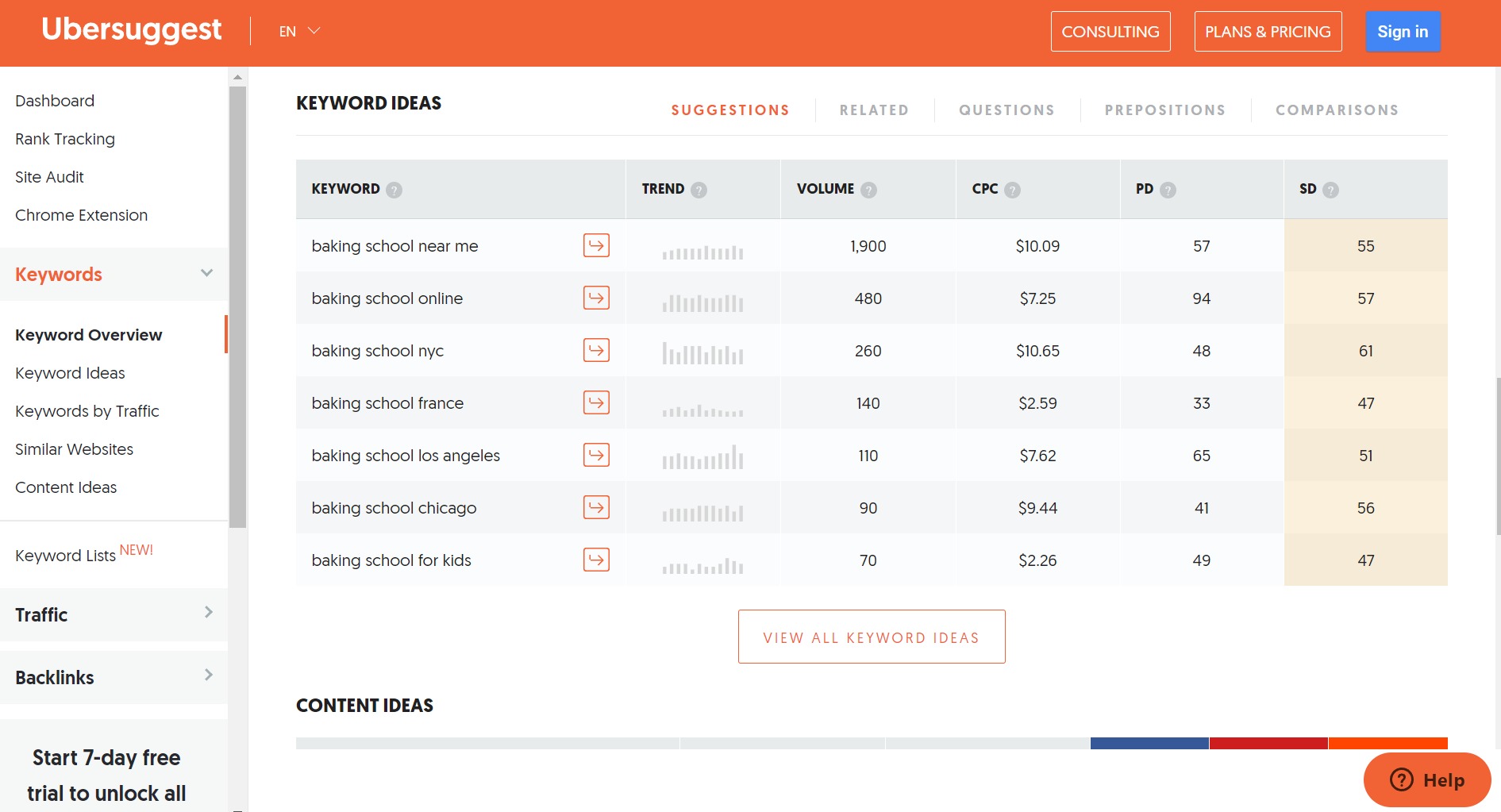
- SpyFu helps with overall SEO strategy and tracking all the necessary SEO metrics for business websites.
![]() Neglecting Off-site SEO Issues
Neglecting Off-site SEO Issues
Most business owners focus on on-site and technical aspects of SEO while neglecting the Off-site attributes.
Off-site SEO is an umbrella term that involves social media outreach, brand recognition, and the market reputation of a business website. These attributes are vital to an SEO audit.
Off-site SEO indicators can improve the brand perception of your target audience. They contribute to 1/3rd of the overall SEO strategy for a business website.
Ask your webmaster to analyze off-site SEO attributes for better SEO health of a business website.
Some of the popular tools to use for off-site SEO analysis of your business website are as follows,
- ConsumerAffairs is a reviews platform for business websites. You can gain genuine customer testimonials using this platform.

- Better Business Bureau (BBB) is one of the most trusted platforms to know your market reputation and improve it.
![]() Ignoring Reviews and Feedback
Ignoring Reviews and Feedback
Reviews and feedback are the building blocks of a measurable SEO audit. Reviews and feedback come under off-site SEO attributes.
Business owners and inexperienced marketers often ignore the importance of customer testimonials in an SEO audit. You should use these reviews to indicate market reputation in an SEO audit.
Genuine testimonials are a great way to gain online mentions for a business website. Positive business reviews on local directories and social media platforms can attract high-quality backlinks from websites with high domain authority.
Some of the popular platforms for genuine customer testimonials for business websites are as follows,
- Local Directories: Google My Business and Bing Places are excellent web directories for businesses to attract genuine customer testimonials.
Here’s an example of reviews on a GMB listing.

- Social Media Platforms: Meta Business Suite, Instagram Business, and LinkedIn are underrated platforms to reach out to your users for genuine feedback.
SEO Audit – FAQs
What Is A Measurable SEO Audit?
A measurable SEO audit will identify and resolve non-performing SEO practices to improve the overall SEO health of a business website. An SEO audit will find the areas for improvement and the practices to change.
What Is The Purpose Of An SEO Audit?
It will also identify mistakes and suggest long-term solutions to them. An SEO audit aims to strengthen the viability of a business SEO strategy.
What Are The Benefits Of SEO Audits?
Some of the benefits of an SEO audit are as follows,
Finding out outdated SEO practices and fixing them.
Identifying slow-performing SEO practices and suggesting alternative agile methodologies.
Improve overall SEO health and market performances of a business website.
How Do I Know If My Website Needs An SEO Audit?
Two signs that your business website needs an SEO audit are as follows,
If you are launching a new website and want to check the viability of your SEO strategy.
If your website’s current market rankings are falling off on SERPs.
How Does An SEO Audit Contribute To An SEO Strategy?
An SEO audit will confirm an SEO strategy's feasibility and success rate. It will let you know about both the lacunae and strengths of your existing SEO practices. An SEO audit will improve the overall viability of an SEO strategy.
How To Do An SEO Audit?
You can check these primary attributes to do an SEO audit,
Check for your website’s URL structure.
Analyze your existing market rankings.
Analyze your page load speed and website speed.
Check for the mobile-friendliness of your business website.
Does An SEO Audit Control SEO Metrics?
No, SEO audits do not control or influence any SEO metrics. SEO audits simply point out the flaws and lacunae in an SEO strategy. You can better your existing SEO strategies through a measurable SEO strategy.
How Often Should You Do An SEO Audit?
The frequency of SEO audits depends on low organic market rankings, decreasing on-site user engagement, and the page load speed of a business website. User readability and search engine crawlability are vital factors in an SEO audit.
How Much Does An SEO Audit Cost?
Frankly, the cost of SEO audits depends on the size and requirements of a business website. SEO audits for small to mid-range websites can cost between 350$ to 1000$. Enterprise SEO audits can cost up to 3000$.
How Long Does It Take Complete A Website SEO Audit?
A measurable SEO audit can take 1 to 2 weeks, depending on goals and metrics. During an audit, a webmaster will be exploring SEO opportunities on the business website. The length of an SEO audit also depends on the organization's size.
What Are The Different Types Of SEO Audits?
Three types of measurable SEO audits exist for a business website. The on-page audit focuses on on-site traffic and user engagements like metrics. The technical audit focuses on identifying flaws in SEO practices. The off-site audit focuses on a business website's user experience and market visibility.
How Do You Measure The SEO Health Of A Website From An SEO Audit?
An SEO audit will check and analyze the vital SEO attributes of a business website. It will check for areas of improvement and new SEO strategy implementation. You can analyze your website’s SEO health from your SEO audit report.
What Is An Outsourced SEO Audit?
An Outsourced SEO audit is done by an SEO firm or an external webmaster. SEO professionals carry out these SEO audits. Outsourced SEO audits can give you neutral and fair reports to improve your SEO strategy.
What Are The Downsides Of An SEO Audit?
Running a generic SEO audit will only scratch the surface of your business website. Business owners are opting for generic SEO audits due to their low cost. An in-depth SEO audit will give you a real-time analysis of SEO attributes and their performances.
What Are The Best Tools For An SEO Audit?
There are a few website SEO auditor tools are as follows,
Screaming Frog SEO Spider is an excellent auditor tool.
Ahref’s SEO analyzer is another efficient SEO tool.
Hexometer is a free site auditor tool for small and mid-scale enterprises.
What Should My First SEO Audit Report Look Like?
A neutral webmaster or an unbiased agency should do the first SEO audit report. The report should point out all the findings on essential SEO metrics. The webmaster should provide solutions to existing SEO issues.
- What is an SEO Audit?
- Importance of SEO Audit
- To Detect Technical SEO Issues
- To Do On-page SEO Analysis
- To Find Potential Off-site Issues
- To Improve Website Architecture
- To Gain Competitive Market insights
- To Measure The Success of SEO
- To Measure The Content Health
- To Detect User Experience Issues
- The Complete SEO Audit Checklist
- Online Visibility of a Business Listing
- On-site Lead Conversion Rate
- On-site Traffic and Dwell Time
- Market Rankings
- Market Reputation and Credibility
- On-site User Experience
- Website Load Speed and Downtime
- On-site Technical Issues
- Reviews and Testimonials
- Social Media Engagement
- Scan for Security Issues
- Real-time Market Performance
- SEO Audit Mistakes People Make
- Opting for a Generic SEO Audit
- Bad HTTPS Migration
- Content Plagiarism Issues
- Chaotic Navigation Structure
- Inefficient Website Architecture
- Isolated Content and Webpages
- Bad Link Building Structure Issues
- Neglecting Technical SEO Issues
- Improper Implementation Code
- Outdated SEO Practices
- Neglecting Off-site SEO Issues
- Ignoring Reviews and Feedback
- SEO Audit – FAQs

 To Detect Technical SEO Issues
To Detect Technical SEO Issues